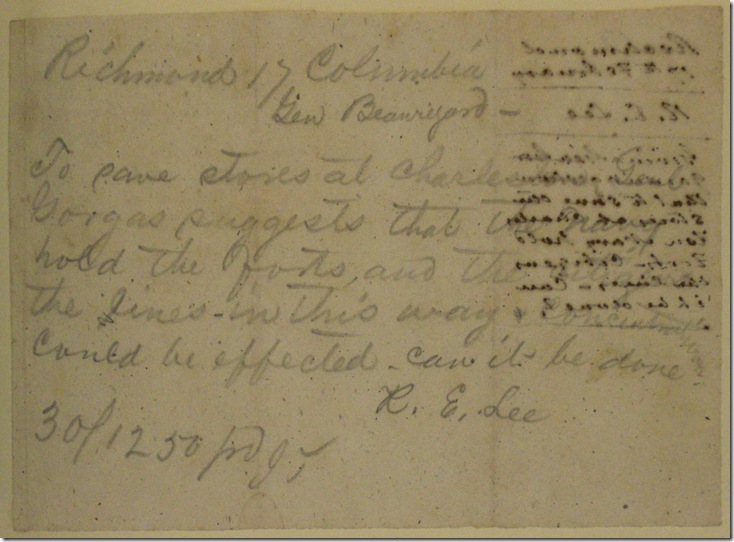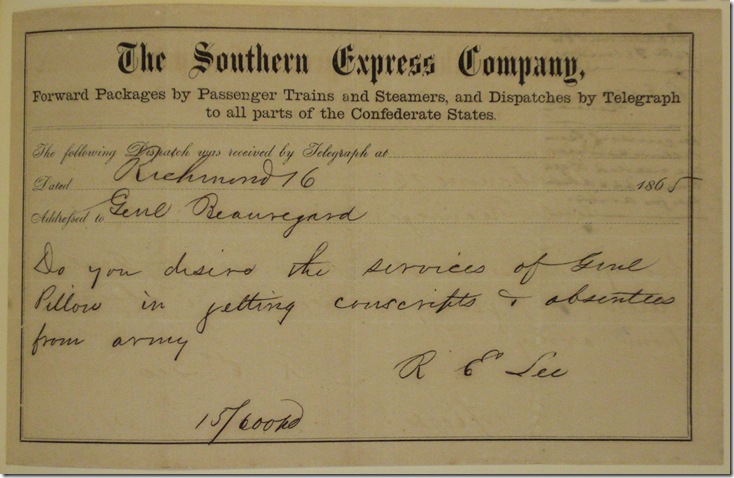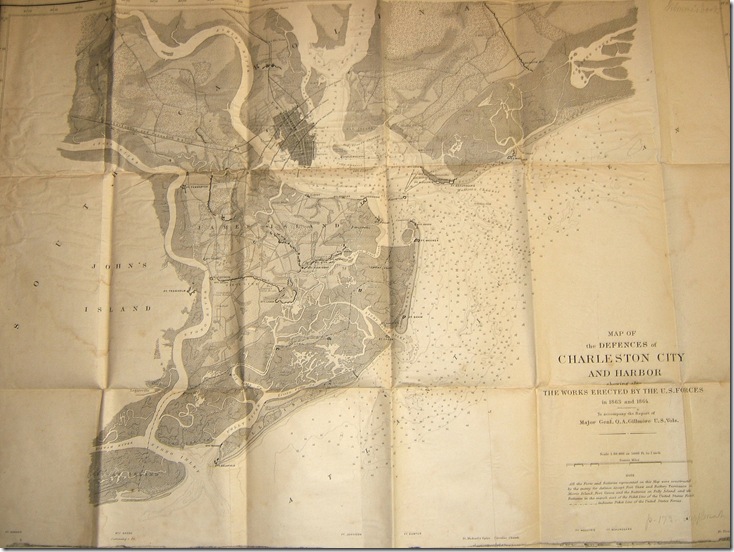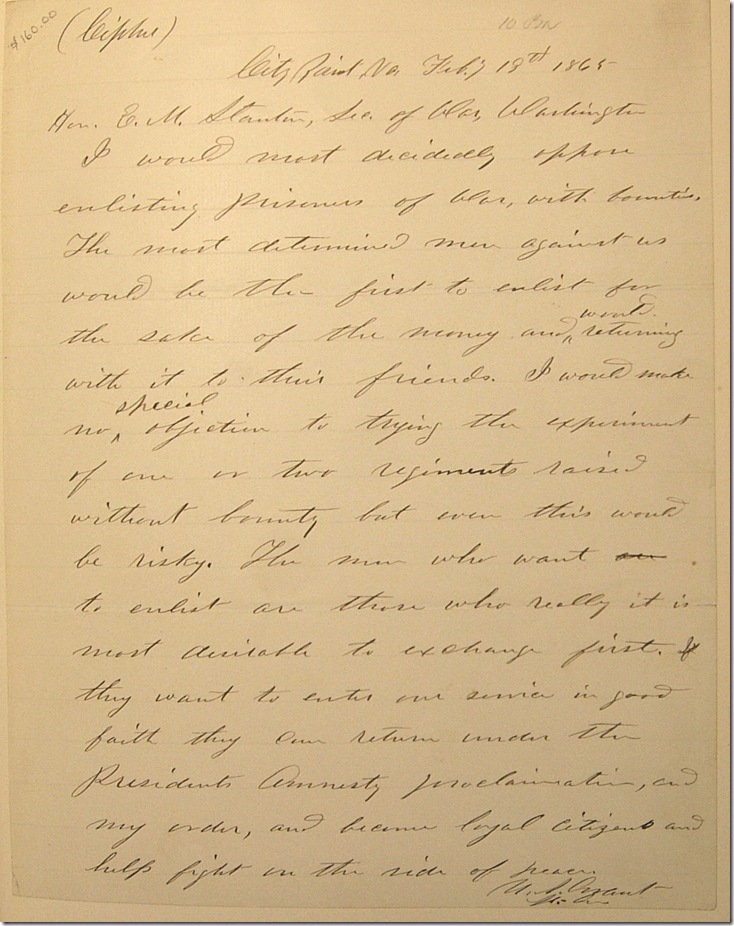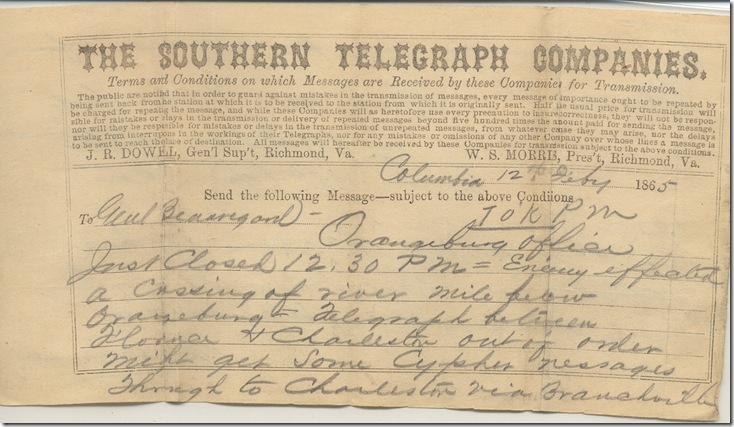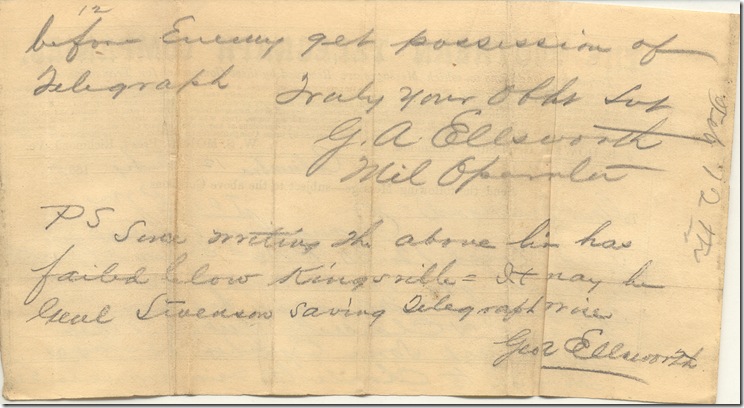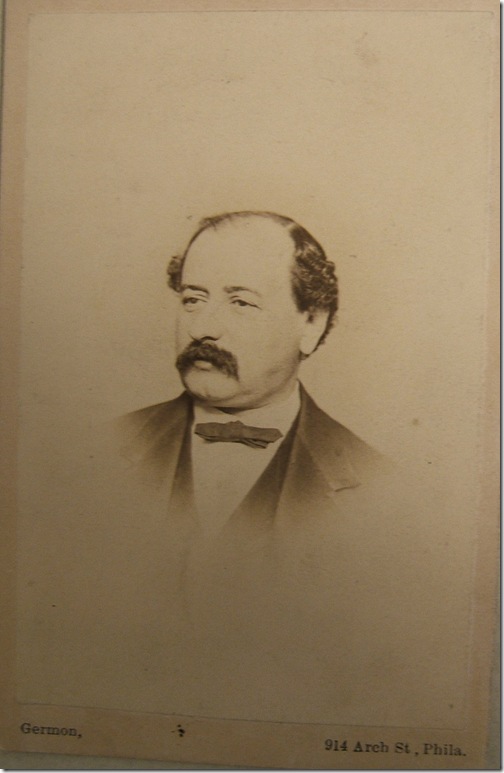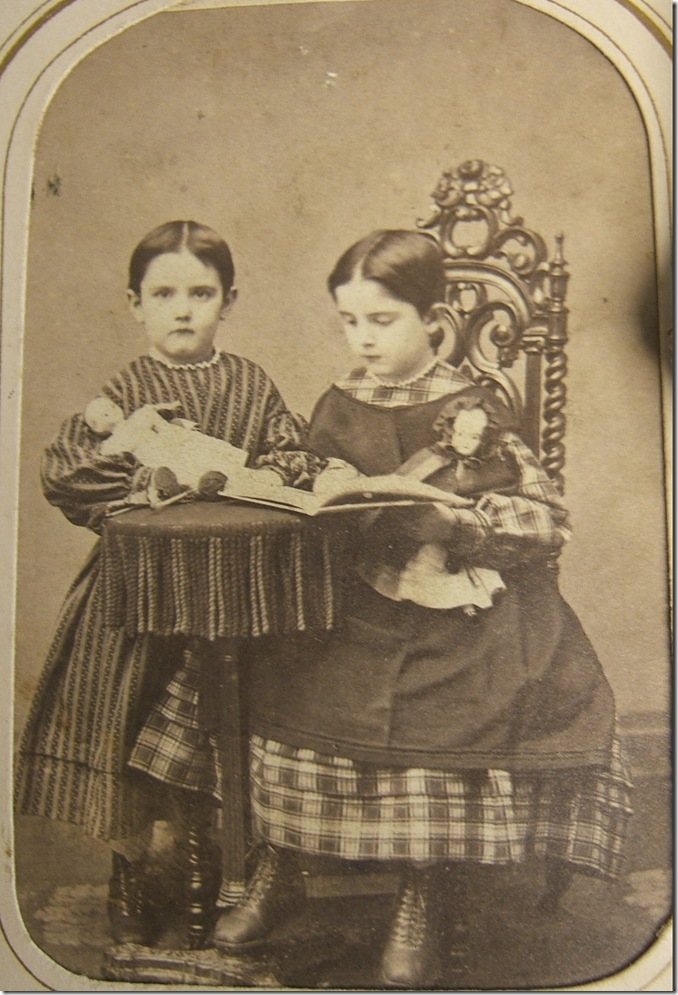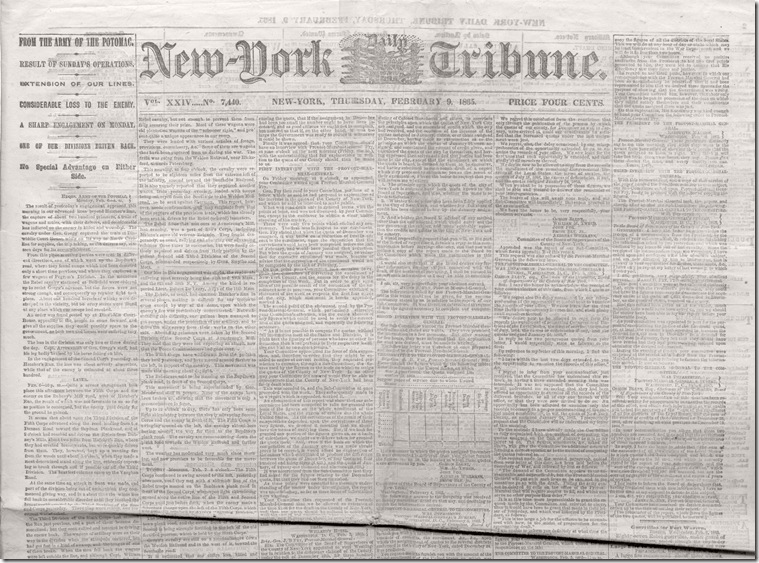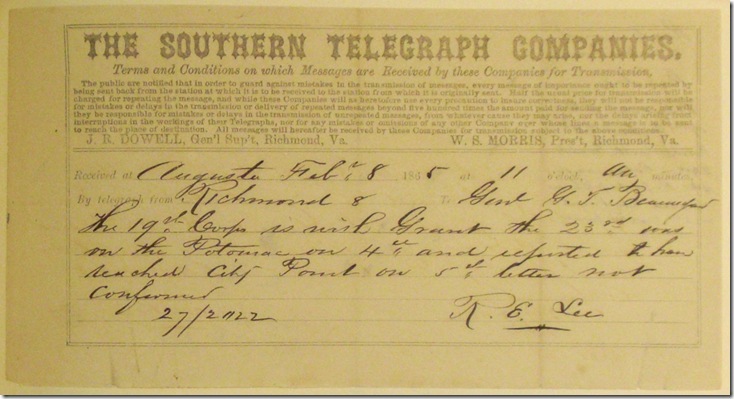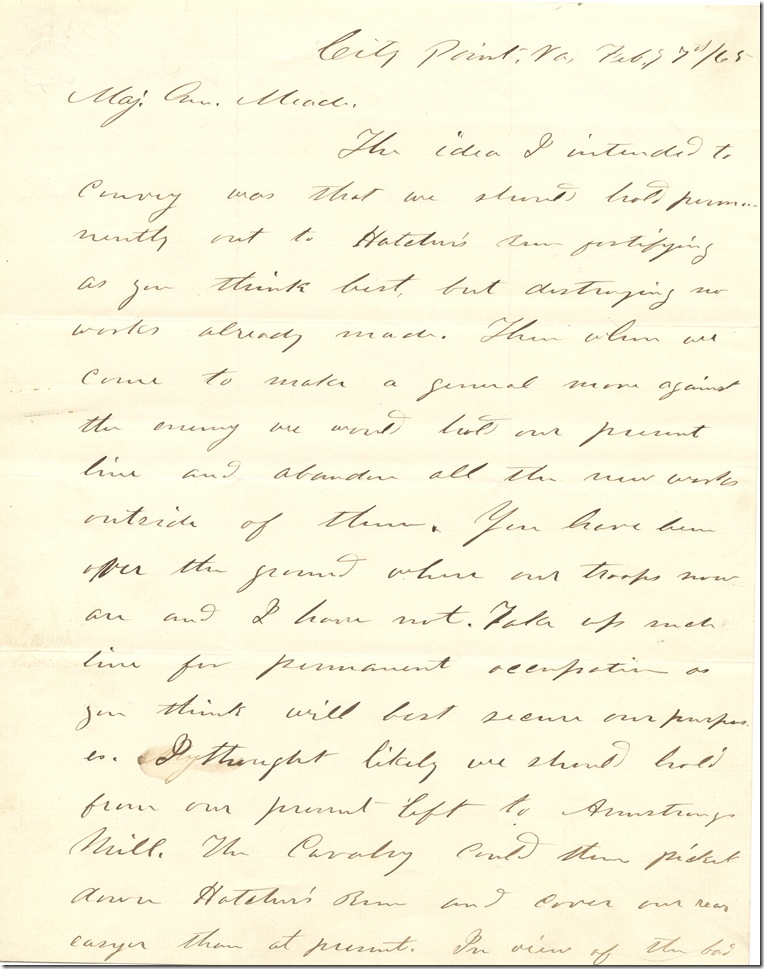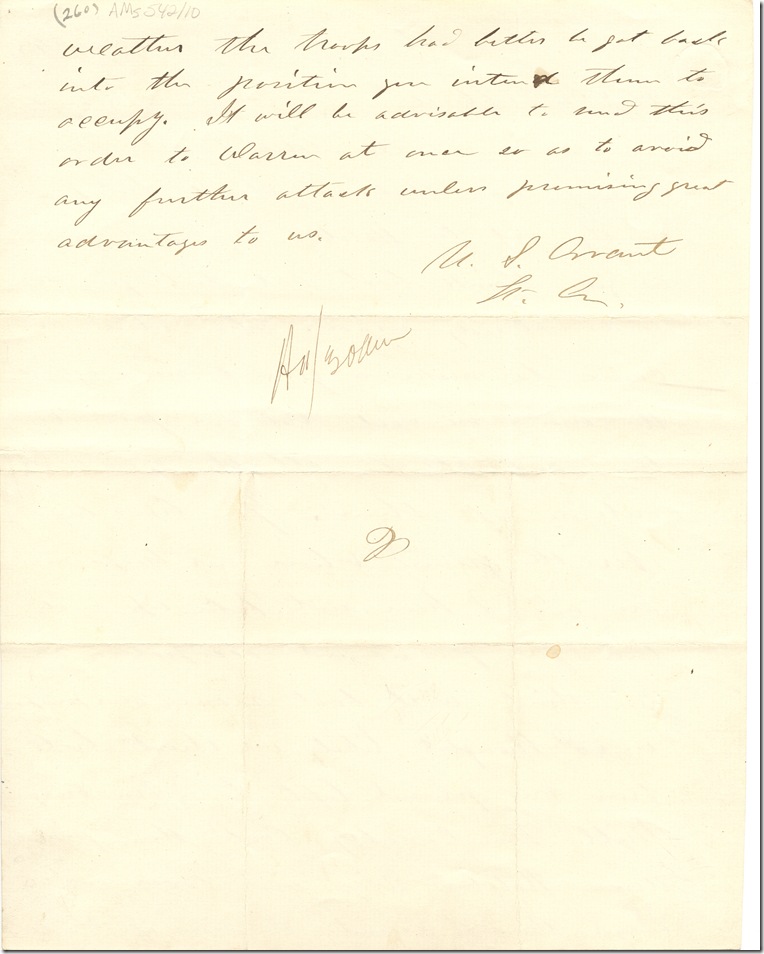Pierre Gustave Toutant Beauregard was a Louisiana-born general of the Confederate States Army. He had graduated second in his class from West Point in 1838 and was an admirer of Napoleon. He achieved fame early in the Civil War for commanding the Fort Sumter bombardment and as the victor of the first battle of Manassas. He later served in the Western Theater (including Shiloh and Corinth), Charleston, and the defense of Richmond, but his career was hampered by friction with Jefferson Davis and other generals.
This telegram is from The Telegraphic History of the Civil War; a compiled album of telegrams to Beauregard from Davis, Lee, Johnston and others.
Transcript:
Richmond 17 Columbia
Gen Beauregard
To save stores at Charleston Genl Gorgas suggest that the navy hold the forts, and the citizens the lines – in this way & concentration could be effected – can it be done?
R. E. Lee
3/1250 pd GT
Citation:Robert E. Lee (1807-1870), telegram to G.T. Beauregard. Richmond, 16 February 1865. In The telegraphic
